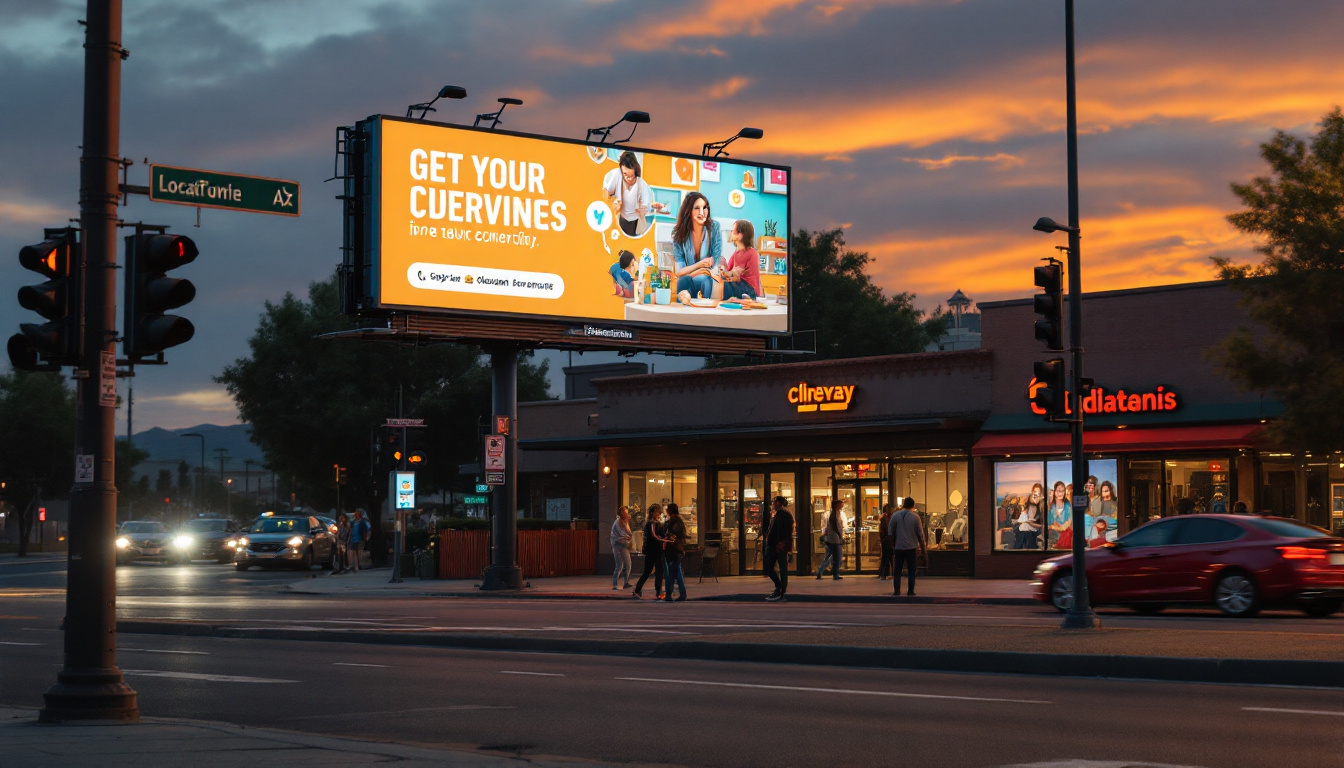Best Practices for Running Geo-Targeted PPC Ads in Phoenix, AZ

In the competitive world of pay-per-click (PPC) advertising, geo-targeting allows advertisers to focus their campaigns on specific locations, particularly cities like Phoenix, AZ. With a diverse population and a thriving economy, Phoenix presents a wealth of opportunities for businesses seeking to reach local customers effectively.
Best Practices for Running Geo-Targeted PPC Ads in Phoenix, AZ
When creating geo-targeted PPC ads, especially in a bustling market like Phoenix, there are several best practices to consider. Ensuring your ads reach the right audience is crucial for optimizing performance and maximizing ROI.
First, define your target audience accurately. Understand the demographics, interests, and behaviors of consumers in Phoenix, as these factors greatly influence ad effectiveness. Consider conducting market research or utilizing tools like Google Analytics to gather insights into local preferences. Additionally, leveraging social media platforms can provide a wealth of information about trending topics and community interests, which can be invaluable for tailoring your ad campaigns.
Next, use specific location targeting settings in your ad campaigns. Google Ads offers geographic targeting capabilities that allow you to reach users based on their physical location. You can focus on specific ZIP codes, neighborhoods, or even radius targeting around your business. This precision ensures that your ads are shown to those most likely to engage, whether they are locals or visitors exploring the area.
Additionally, it's essential to adjust your ad copy and creative based on local culture and trends. Incorporating local keywords, references, and community events can make your ads resonate more with the target audience. Use localized language and imagery that reflects the unique aspects of the Phoenix region. For instance, referencing popular local attractions like the Desert Botanical Garden or events such as the Arizona State Fair can create a connection with potential customers, making your ads more appealing.
The benefits of geo-targeting for Phoenix, AZ advertisers
Geo-targeting offers numerous benefits to advertisers in Phoenix. First and foremost, it enhances relevancy. Ads that are tailored to the local audience often receive higher engagement rates, leading to better click-through and conversion rates. By focusing on the specific needs and preferences of Phoenix residents, advertisers can create messages that truly resonate, increasing the likelihood of customer action.
Moreover, geo-targeting helps in budgeting by reducing wasted ad spend. By concentrating efforts on specific geographic areas, businesses can allocate their budgets more efficiently, targeting only potential customers who are likely to convert. This approach not only maximizes the effectiveness of each dollar spent but also allows for more strategic planning in future campaigns based on performance data.
Furthermore, geo-targeting allows for personalization. Advertisers can create customized offers that appeal to local preferences, such as special discounts or events that are relevant to the Phoenix community. This personal touch can significantly improve customer loyalty and brand recognition. For example, a local restaurant might promote a special dish inspired by regional flavors or a seasonal event that draws in the community, enhancing the overall customer experience.
How to set up location targeting in Google Ads
Setting up location targeting in Google Ads is a straightforward process. Here’s how to do it:
- Log in to your Google Ads account and navigate to the campaign you wish to edit.
- Select "Settings" in the left sidebar.
- Under the "Locations" section, click on "Edit" to enter specific locations.
- You can choose to target a specific radius around your business, focus on specific cities, or include specific postal codes.
- Finally, review your settings to ensure they align with your marketing goals and click "Save."
It’s also helpful to monitor your campaign reports to see how location performance affects user engagement. Make adjustments as necessary to refine your targeting. Regularly analyzing metrics such as click-through rates, conversion rates, and even customer feedback can provide insights into how well your ads are performing in different areas of Phoenix. This ongoing optimization process ensures that your campaigns remain relevant and effective in a dynamic market.
Tips for refining your local PPC strategy
Refining your local PPC strategy for Phoenix involves continuous optimization and testing. Start by analyzing the performance of your ads geographically. Use Google Ads reporting tools to identify which locations generate the most clicks and conversions. Understanding the nuances of different neighborhoods can help you tailor your campaigns to specific demographics, ensuring that your message resonates with the local audience. For instance, ads targeting areas with a higher concentration of young professionals might focus on trendy services or products, while ads aimed at family-oriented neighborhoods could emphasize family-friendly offerings.

Next, utilize A/B testing for your ad copy and landing pages. Experiment with different headlines, descriptions, and calls-to-action to determine what resonates best with your local audience. This iterative approach helps identify optimal strategies that drive results in Phoenix. Additionally, consider the timing of your ads; certain times of day or days of the week may yield better engagement based on local habits and routines. By analyzing these patterns, you can further refine your ad scheduling to maximize visibility and conversions.
Consider leveraging ad extensions tailored to local audiences, such as location extensions that display your address and phone number directly in ads. This feature increases trust and encourages users to engage more readily with your business. Furthermore, implementing callout extensions can highlight special offers or unique selling propositions, making your ads more appealing. For example, if your business offers free consultations or discounts for first-time customers, showcasing these benefits in your ads can significantly enhance click-through rates.
Lastly, keep an eye on local competitors. Analyze their strategies by examining their ad copy, targeted locations, and engagement rates. Using tools like SEMrush or SpyFu can provide useful insights into competitor performance and enable you to refine your approach. Pay attention to seasonal trends and local events that competitors may leverage in their advertising. This awareness can help you capitalize on opportunities that others might overlook, allowing your campaigns to stand out in a crowded marketplace.
Tools for analyzing local market performance
There are several tools available that can help you analyze local market performance in Phoenix:
- Google Analytics: This tool provides extensive data on user activity on your website, including traffic sources, demographics, and user behavior. By setting up goals and tracking conversions, you can gain deeper insights into how your PPC efforts translate into actual business outcomes.
- SEMrush: SEMrush offers detailed competitor analysis, keyword research, and trend tracking to help you stay competitive in the local market. You can also use it to find local keywords that may not be as competitive but still relevant to your business, giving you an edge in your PPC campaigns.
- Google Trends: By using Google Trends, you can identify popular keywords and search trends specific to the Phoenix area, providing insight into consumer interests. This tool can also help you anticipate shifts in demand, allowing you to adjust your PPC strategy proactively.
- Facebook Audience Insights: If you leverage social media for ads, this tool can help you discover more about the demographics and behaviors of your audience, allowing for better targeting. Understanding your audience's interests and online behavior can help you create more engaging ad content that speaks directly to their needs.
Using these tools can provide a robust framework for measuring the success of your geo-targeted PPC efforts and can highlight opportunities for further optimization. Additionally, consider integrating customer feedback and reviews into your strategy. Monitoring customer sentiment can offer invaluable insights that inform your PPC campaigns, ensuring that they align with the expectations and preferences of your local market.
Examples of effective geo-targeted campaigns in Phoenix, AZ
Examining successful geo-targeted PPC campaigns can yield valuable insights into best practices. One notable example includes a local real estate agency that targeted potential home buyers in specific neighborhoods within Phoenix. By utilizing area-specific keywords in their ad copy and redirecting users to tailored landing pages highlighting properties in those neighborhoods, they saw a substantial increase in inquiries and conversions. This strategy not only improved their click-through rates but also fostered a deeper connection with the community, as prospective buyers felt that the agency understood their unique needs and preferences.

Another effective campaign involved a local restaurant promoting a new menu launch. They implemented a location-based promotion, offering discounts exclusively for customers in the vicinity during lunch hours. This not only drove foot traffic but also fostered a sense of community engagement, enhancing their brand image in Phoenix. The restaurant took it a step further by encouraging customers to share their experiences on social media, creating a buzz around the new menu items and attracting even more patrons through word-of-mouth marketing. By integrating social media with their geo-targeted ads, they successfully amplified their reach and solidified their presence in the local dining scene.
A final example includes a clothing retailer that focused on holiday promotions through geo-targeted ads during the shopping season. They leveraged Google’s location targeting to reach users who were actively searching for gift ideas in Phoenix, coupled with retargeting strategies to remind previous visitors about their offerings. This approach resulted in a significant boost in store visits and online sales. Additionally, the retailer organized in-store events that tied into their online campaigns, such as exclusive shopping nights for local customers, which not only increased foot traffic but also created a memorable shopping experience that encouraged customer loyalty.
In addition to these examples, many businesses in Phoenix have started to utilize geo-fencing technology to enhance their marketing efforts. By setting up virtual boundaries around specific areas, they can send targeted promotions or notifications to potential customers' mobile devices when they enter these zones. For instance, a local gym might send a special offer to individuals who walk by their location, enticing them to stop in for a tour or a free trial class. This innovative approach not only captures the attention of nearby consumers but also allows businesses to engage with them in real-time, making their marketing efforts more dynamic and effective. As the landscape of digital marketing continues to evolve, embracing these advanced strategies can further empower businesses to connect with their local audience in meaningful ways.

As a Google Ads expert, I bring proven expertise in optimizing advertising campaigns to maximize ROI.
I specialize in sharing advanced strategies and targeted tips to refine Google Ads campaign management.
Committed to staying ahead of the latest trends and algorithms, I ensure that my clients receive cutting-edge solutions.
My passion for digital marketing and my ability to interpret data for strategic insights enable me to offer high-level consulting that aims to exceed expectations.



















